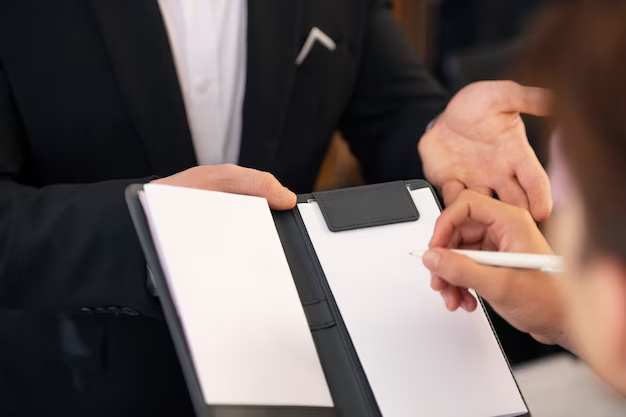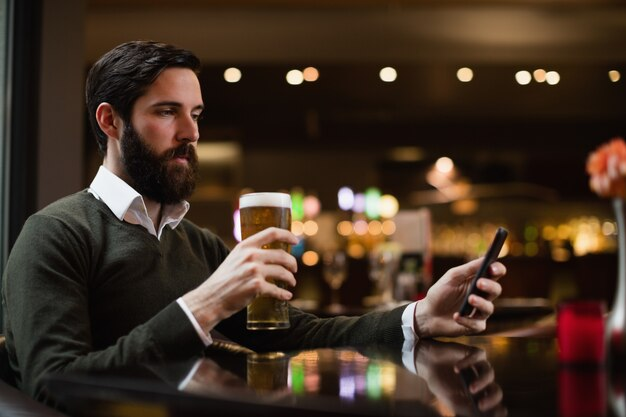Navigating the world of alcohol licensing in Dubai can seem daunting, especially to newcomers or those looking to enter the hospitality scene. At its core, alcohol licensing is a legal framework that regulates the purchase, sale, and consumption of liquors in the region. In Dubai, obtaining a license to serve or sell alcohol is mandatory, and the guidelines are strict, reflecting the city’s balance between its cosmopolitan makeup and its adherence to local customs and laws. In this article, we’ll explore the intricacies of alcohol licensing in Dubai, outlining what you need to know to stay compliant and avoid unnecessary trouble.
The Legal Landscape of Alcohol Licensing
In Dubai, alcohol licensing is overseen by the Dubai Police and the city’s municipality. As of the knowledge cutoff in 2023, non-Muslim residents who wish to consume, purchase, or store alcohol in their homes must apply for a personal liquor license. Tourists and visitors, meanwhile, can partake in alcoholic beverages within licensed venues, such as hotels, without such a license. It is essential to understand that being caught drunk in public or purchasing alcohol from an unlicensed source could lead to severe penalties, including fines, jail time, or deportation.

Criteria for Obtaining a Personal Liquor License
- Be a non-Muslim
- Be 21 years of age or older
- Possess a UAE residence visa
- Earn a minimum monthly salary (varies by year)
- Have no criminal record in the UAE
Expatriates are typically required to provide documentation, such as a copy of their passport, visa, tenancy agreement, and a letter from their employer stating their salary, as part of their application.
The Application Process for Alcohol Licensing
The process of securing a personal alcohol license in Dubai is relatively straightforward, though it requires careful attention to detail to ensure all paperwork is correctly submitted.
- Apply online or at a licensed liquor store.
- Submit the required documents and pay the application fee.
- Await approval, which may take a couple of weeks.
Once your application is approved, you will receive a license that allows you to purchase alcohol from licensed stores up to a specified quota, which is typically linked to your monthly earnings.
Commercial Alcohol Licensing for Businesses
For businesses, obtaining a commercial alcohol license is a more complex affair. The type of license needed will depend on the nature of your establishment and the scope of your alcohol offerings. Would-be restaurateurs or hoteliers must navigate a series of regulatory requirements and demonstrate that their business will not contravene the cultural norms of the local community.
Licenses are typically categorized as follows:
- A license for serving alcohol in conjunction with food (restaurants and hotels)
- A retail license for selling closed bottles (liquor stores)
- Special licenses for events and functions
Considering the cultural sensitivities around alcohol consumption in Dubai, businesses must also ensure that their advertising and public visibility adhere to decency laws, making sure that alcohol is not overtly promoted or visible to passersby.
Regulatory Compliance and Penalties
Adherence to the conditions of your alcohol license is paramount in Dubai. For personal licenses, exceeding your purchasing quota or providing alcohol to a minor could lead to your license being revoked, alongside other legal repercussions. For businesses, non-compliance with licensing laws can result in hefty fines, temporary closures, or permanent revocation of their alcohol licenses.
| Offense | Potential Consequences |
|---|---|
| Selling without a license | Fines, imprisonment, business closure |
| Exceeding purchase quota | Fines, license revocation |
| Serving drunk patrons | Fines, license scrutiny, mandatory staff training |
In conclusion, alcohol licensing in Dubai is a regulated area that operates under stringent laws designed to balance the city’s diverse cultural landscape with respect for local customs. Individuals and businesses must tread carefully, ensuring they understand and adhere to the licensing rules. By following the right steps and respecting the cultural context, your interactions involving liquor can be seamless and legally compliant.

Continuing with Alcohol Licensing in Dubai: Practical Considerations and Best Practices
Renewal And Maintenance Of Licenses
Just as important as obtaining your license is keeping it up-to-date. Personal liquor licenses in Dubai must be renewed annually, and your eligibility might be reassessed at each renewal juncture. It is crucial to mark the expiration date and begin the renewal process well in advance to avoid any lapse in legality. For businesses, regular audits and inspections may occur, and maintaining meticulous records of sales and purchases of alcohol is not just good practice—it’s a regulatory requirement. Licensees who stay ahead of the renewal process and follow the letter of the law will find themselves in good standing and less likely to encounter issues.
Training And Education For Serving Staff
For businesses that serve alcohol, investing in proper staff training is non-negotiable. Employees must be aware of the laws regarding alcohol service, including not serving to minors or to customers who appear intoxicated. A well-trained staff can help mitigate potential liabilities:
- Staff should be versed in techniques for diffusing situations with unruly customers.
- Regular refresher courses can keep employees current on any changes in alcohol-related laws and policies.
Most importantly, it equips them with the knowledge to serve responsibly, ensuring a safe environment for all patrons and aligning with Dubai’s public safety objectives.
Implications For Tourists And Visitors
Tourists visiting Dubai should be especially mindful of the alcohol laws to ensure their holiday doesn’t unexpectedly turn sour. It’s relatively well-known that tourists can consume alcohol in licensed venues, but outside these confines, they are subject to the same laws as residents. It is also pertinent for tourists to understand they cannot buy alcohol to take away from these venues without a license. Visitors should always carry identification, as failure to produce valid ID when requested by authorities could compound any difficulties arising from misunderstandings about alcohol-related regulations.
Strategies For Business Compliance
Business operators must be strategic in their approach to compliance in order to seamlessly integrate alcohol service into their offering without falling afoul of the law.
Key Strategies Include:
- Develop rigorous internal compliance policies.
- Schedule regular audits to ensure all practices and paperwork are in order.
- Foster strong relationships with regulatory bodies, seeking guidance when needed.
Such strategies can prevent inadvertent violations and help build a reputation for responsible operation, which is paramount in a city that takes its regulations seriously.

The Future Of Alcohol Licensing In Dubai
As Dubai continues to evolve as a global business hub and tourist destination, the regulations around alcohol licensing are subject to change. Potential business owners and residents should stay informed about policy shifts that may affect the legal landscape. Authorities are increasingly leveraging technology to streamline processes, so prospective applicants should be prepared to navigate digital platforms for most of their licensing needs. Looking ahead, the interplay between maintaining traditional values and catering to an international clientele will likely continue to shape the nature of alcohol licensing in Dubai.
Conclusion
Obtaining an alcohol license in Dubai is a regulated process governed by the authorities to ensure responsible consumption and adherence to local laws and customs. Throughout this guide, we’ve outlined the necessary steps and requirements to successfully apply for an alcohol license in Dubai.
Remember, it’s crucial to familiarize yourself with the legal requirements and restrictions surrounding the purchase and consumption of alcohol in the emirate. Compliance with these regulations not only ensures a smooth application process but also promotes responsible behavior within the community.
By following the steps outlined in this article and adhering to the guidelines set forth by the authorities, individuals can navigate the process of obtaining an alcohol license in Dubai efficiently and lawfully.
Should you have any further questions or require clarification on any aspect of the application process, it is advisable to consult with the relevant authorities or seek legal counsel.
Thank you for reading our guide on how to apply for an alcohol license in Dubai. We hope this information proves valuable in your endeavor to obtain a license and enjoy alcoholic beverages responsibly within the emirate.
Frequently Asked Questions (FAQs):
Q1: Can tourists buy alcohol in Dubai?
A1: Tourists are allowed to consume alcohol in licensed establishments such as hotels, bars, and restaurants in Dubai. However, they are not permitted to purchase alcohol from liquor stores without a personal liquor license, which is typically not available to tourists.
Q2: Is alcohol expensive in Dubai due to the licensing requirements?
A2: Alcohol prices in Dubai can be higher than in some other countries, in part due to taxation and the costs associated with the licensing process. However, prices vary across different venues and promotions may apply.
Q3: What happens if you’re caught without an alcohol license in Dubai?
A3: Individuals caught purchasing, consuming, or possessing alcohol without a valid license can face fines, jail time, or deportation. It’s crucial to adhere to the licensing requirements to avoid such penalties.
Q4: Are there dry days in Dubai when alcohol is not served?
A4: Yes, Dubai observes dry days, typically in alignment with religious or national observances, where the sale of alcohol is prohibited across the city. These dates are announced in advance.
Q5: Can you drink alcohol in public in Dubai?
A5: Public consumption of alcohol is strictly prohibited in Dubai. Drinking is only allowed within licensed private venues, and being intoxicated in public can lead to serious legal consequences.
